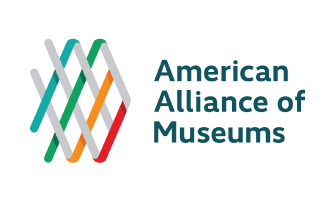
Educator Resources
We invite you to take advantage of programs aimed at expanding your knowledge and enhancing your teaching skills. Use our resources to supplement your classroom curriculum, enhance a field trip experience, or bring Indiana to life for your students. Learn about these opportunities in the Early Childhood-Grade 12 Education Program Guide.
view guideDiscover Our Exhibits
We’re always searching for ways to integrate our teachers into our featured experiences. Here, you’ll find additional resources to complement a visit to an exhibit at the Indiana State Museum and Historic Sites.

GOOD NIGHT FOREST
June 8 to Oct. 31
Families with little ones will feel like they are stepping into a beloved children’s storybook as they encounter whimsical scenes and engaging sensory activities in this new nature-inspired experience. Designed to help build confidence and cultivate scientific curiosity, children will discover and learn about animals that emerge in their neighborhoods and local forests after the sun goes down.
Learn more Suggested Book ListDREAM TOMORROW TODAY
Jan. 25-May 4, 2025
Visitors will learn how to positively impact the future and become empowered agents of change through fun, immersive experiences! Become a STEM recruit in a Future Lab where you’ll slide into the future, complete problem-solving activities, build inventions in a Maker Space and design your future city. A bright future depends on you – are you ready? Educators will find these resources helpful in their planning: Educator Guide, Post From the Future, POV Statements and Future POV Types.


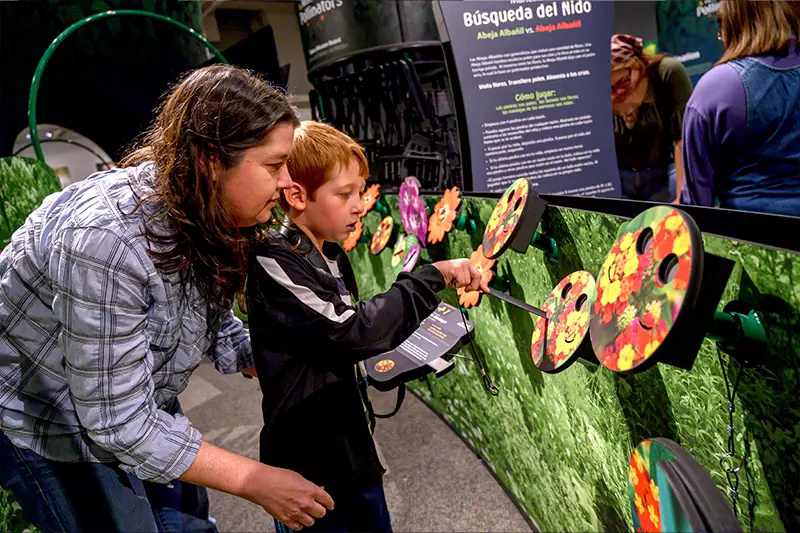
MINOTAUR MAZES: AMAZING POLLINATORS!
May 24-Sept. 1, 2025
Get ready to take flight and explore plants of all shapes, sizes and colors as you take on the role of bats, bees, beetles and butterflies in the immersive exhibit. Play games, take on missions and level up as you make your way through a colorful maze. From gardens to farms, and rainforests to deserts, explore these pollinators’ powers and discover their wondrous benefits to Earth’s plants, ecosystems and even humans. Educators will find these resources helpful in their planning: Field Trip FAQ and Field Trip Guide.
Explore Unique Workshops and Videos
The Indiana State Museum and Historic Sites is committed to helping our state’s educators provide the most dynamic classroom and at-home learning experiences possible through engaging workshops and videos.
INDIANA WOMEN’S SUFFRAGE CENTENNIAL EDUCATOR WORKSHOP
Incorporate curriculum highlighting Indiana’s suffrage history into your classroom by gaining insight into the work done by Hoosiers who fought to win a woman’s right to vote. See the curriculum and watch a recording of our workshop to learn how to explore this important milestone with your students and also how to connect this content with the continued fight for voting rights today.
Download the curriculumART, HISTORY, CULTURE AND STEAM EDUCATOR VIDEOS
Are you interested in introducing the museum or a topic to your students before your field trip? Is it too far to visit the museum? Bring the museum to your classroom with these short videos that cover a wide range of art, history, culture and STEAM topics for early childhood through grade 12 students. These videos highlight some of our most popular artifacts and experiences in the museum. The videos are free to incorporate in your classroom whenever you need and are connected to Indiana Academic Standards.
EARLY CHILDHOOD
Sensory Play
Sensory activities are popular with young children for a reason – they are fun! Embracing messy sensory play is an important part of the early childhood experience, as children can direct their own learning as they experiment with new materials and tools. By providing a variety of sensory experiences, you can encourage your students to think creatively and approach problems in new ways.
EARLY CHILDHOOD
Story Time
Story time is an integral part of learning for young children. There are many great books out there for children and sometimes it can feel overwhelming. As teachers, sometimes we choose books related to a special theme or topic and sometimes we choose books just for fun, but don’t worry! These tips will work for both situations.
EARLY CHILDHOOD
STEAM Activities
STEAM (science, technology, engineering, art and math) are a primary focus for children at all levels of their schooling. How can early childhood educators support young children as they experiment with STEM concepts in new and exciting ways? By using real tools and looking at common objects in new ways, you can learn to incorporate STEM concepts into your current lessons to extend the learning for all your students.
Grades K - 2
A Day in the Life of Kids: Then and Now
What did Hoosier children do years ago to pass the time? What games did they play? What did their toys look like? Take a peek into the past at different toys and items and compare them to what we see today.
Animal Adaptations
Explore what animals need to survive and how they adapt to their environment from Ice Age to modern day.
Get to Work: Jobs and Inventors of Indiana
Every community is made up of citizens who have a wide variety of jobs. Indiana is home to some amazing entrepreneurs – people who started their own business or created something new. Join us as we check out Hoosiers who had interesting jobs and helped the people of Indiana.
Grades 3 - 5
Native Americans
What role have Native Americans played in shaping Indiana? What did these earliest residents leave behind and what can we learn about how they lived, worked and played?
Rocks and Minerals
Rocks and minerals are all around us. Did you know they can tell us stories about the past? Learn more of these stories and how a rock can change over time.
Simple Machines
Simple machines make the work we do so much easier! Check out some cool ways that we’ve used simple machines from the 1800s through today.
Vincennes & 19th State
How did one of the oldest Indiana settlements come to be? How did the Native Americans and Europeans live and work together to create a community there? Learn how Vincennes became the capital of the Indiana Territory and helped guide us to statehood.
Lincoln’s Impact on Indiana
While Abraham Lincoln lived in Indiana during his formative years, he is most remembered for his lasting impact as a president on Indiana and the United States.
Grades 6 - 8
Telling the American Story through Art
Art can tell a story, evoke emotion, and even help us better understand someone’s culture. How do artists convey the Hoosier spirit and tell the American story? Come along with us as we dive into our collection to see how different pieces of art reflect our society and culture.
Pendulum
What can we learn from a pendulum? Come explore earth’s rotation, cardinal signs and force and motion as we investigate this amazing Foucault pendulum.
Early Indiana Settlements
People have lived in Indiana for thousands of years. Explore how Native Americans and settlers adapted. They didn’t just survive but they thrived. What carried on to today that was established from the earliest communities around the state?
Grades 9 - 12
Human Impact on Earth
Indiana was once covered by water and then ice. How did those ecosystems change as the climate changed? Explore how climate change impacted those ecosystems and what we can learn about humans impact on Earth.
Women of Indiana
Indiana’s past and present are home to women that helped shape our state through their creative, entrepreneur and political work. Learn more about their impact and how it shaped our future.
Indiana Black History
Dive into our stories of African Americans that have called Indiana home and made their mark as entrepreneurs, performers, world class citizens and more. We will discuss some of their challenges and triumphs as laws and society changed.
Immigration in Indiana
Do you know the story behind the school’s façade? Join us as we share how immigration has shaped Indiana.
Opioid Epidemic Educator Videos
Have important conversations with your students and hear from community organizations and experienced professionals who are helping fight our community’s opioid epidemic.
These videos are recommended for grades 6 – 12.
You can watch these videos in the adjacent YouTube playlist or you can directly download the videos here.
Social Justice
MRCI – Community Organization Perspective
Iisha Wesley, Greg Smith and Keith Baker Jr. from Minority Recovery Collective Inc. share their perspective and experience on how the opioid crisis is perceived and handled based on race.
Wendy Noe – Community Organization Perspective
Wendy Noe, executive director of Dove Recovery House for Women, discusses how gender impacts women seeking help during the opioid epidemic.
Susannah Koerber – Historical Perspective
Susannah Koerber, chief curator and research officer at the Indiana State Museum and Historic Sites, speaks to how race, class and gender impact societal response to the opioid crisis from the 19th century to today.
What Good Is Pain
Amy Williams – Expert Perspective
Dr. Amy Williams is a pediatric psychologist for youth who experience chronic or recurrent pain. Learn about the gate control theory for pain and three strategies to control pain. Dr. Williams is also an associate professor of clinical psychiatry at Indiana University School of Medicine.
Emily Israel – Expert Perspective
Emily Israel, Pharm.D., shares how and when opioids are used and how healthcare providers seek the right treatment to help with pain management. Dr. Israel is a clinical associate professor at Purdue University College of Pharmacy.
Nate Moellering – Expert Perspective
Nate Moellering is a community outreach coordinator with Fort Wayne Recovery and Allendale Treatment. He was injured as a high school and college athlete and shares his journey through opioid use disorder, overdoses and recovery. With help from his family and a police officer who encouraged him, Nate entered recovery. He urges others to reach out because there are always people in the recovery community that care and want to help.
Stress
Lade Akande
Lade Akande is a yoga instructor and director of college counseling at University High School in Indianapolis. To help high school students deal with stress, teachers are integrating wellness into the education setting. Akande shares ways that she teaches yoga and stress management and how these techniques empower students to take care of themselves.
John Lee
John Lee is a peer recovery coach and in long-term recovery. Lee shares how being consistent with self-care keeps his mind, body and spirit healthy.
Zach Adams
Zach Adams is a psychologist who explains that stress is a normal part of life. He shares strategies and advice for when stress becomes overwhelming and the importance of staying connected to others.
Justin and Georgeanna
Justin Wade is the executive director for React, formerly Young Actors Theatre, and Georgeanna Smith-Wade the artistic director. They share how they use personal stories and theater arts to help teens feel self-empowered to face stress and challenges.
Stigma
Manon Voice
Spoken word poet Manon Voice shares her experience with the power of words and stigma. Are the words we use about others the words they would choose to describe themselves and their experiences? She calls for compassion and empathy and performs a poem about stigma in its entirety at the end of the video.
Madison Weintraut
Madison Weintraut is a program manager for the Safe Syringe Program in Marion County. How does language and word choice create stigma? Weintraut explains that we shouldn’t define an individual by one aspect of their life.
John Lee
John Lee is a peer recovery coach and an individual in long term recovery. Lee shares the stigma and negative bias of some recovery language and how it impacts individuals trying to get help.
Brain Chemistry
Sarah Gopman
Family physician Sarah Gopman works with women and families and has a sub-specialty in addictions medicine. Dr. Gopman explains how understanding the brain’s biological processes and the role of neuroreceptors helps doctors treat individuals with substance use disorder.
Melisa and Rebekah
Rebekah Gorrell, manager of Indiana Recovery Network, and Melisa Cole, evening coordinator for Community Fairbanks Recovery Center, are both individuals in recovery. Understanding brain chemistry is helpful to support people in recovery and they explain how opioids interact with receptors in our brain and share their experiences.
Brain Chemistry
How do opioids affect brain chemistry? Learn what happens with opioid use disorder that makes it so hard for people to stop taking opioids.
Learning Resources
Our guides make it easy to help you plan for a visit to the Indiana State Museum and Historic Sites.
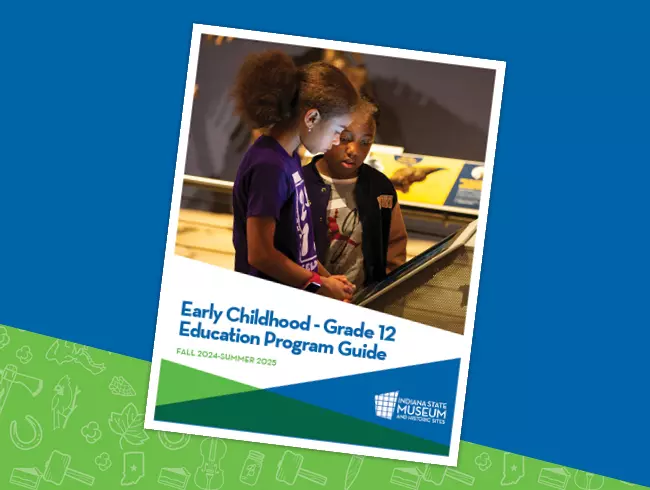
Early Childhood - Grade 12 Education Program Guide
View our Early Childhood – Grade 12 Education Program Guide. This handy tool includes everything you need to know about our free field trips, school and outreach programs, galleries and special exhibitions.
view guideBook Lists
See a book list provided by our T.C. Steele State Historic Site.
Click hereSee a book list recommended for children ages 6 and younger from the Indiana State Museum.
Click here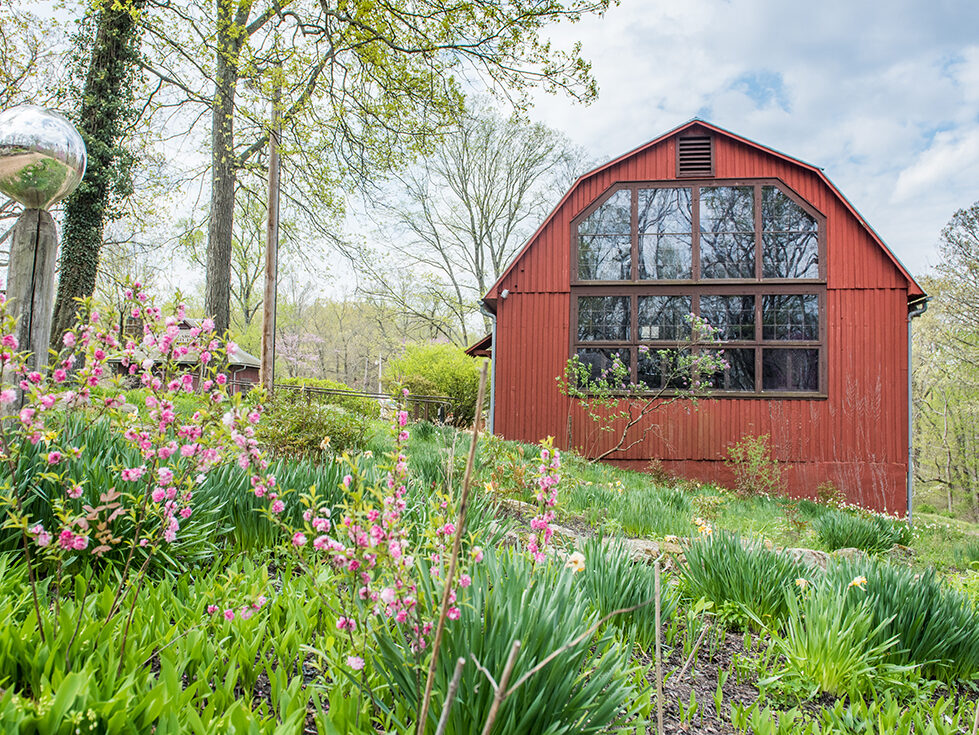
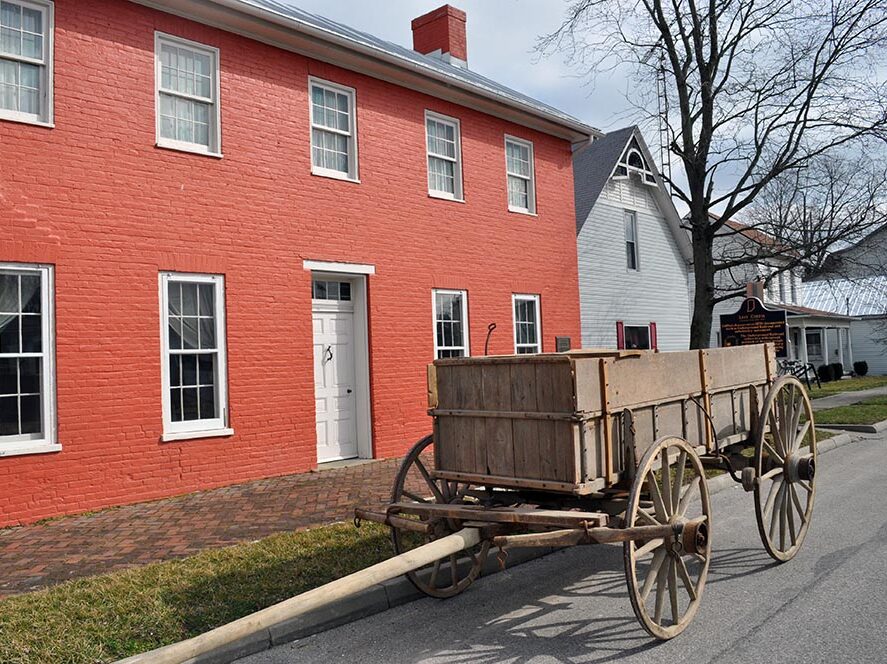
Levi and Catharine Coffin Guide
Download our curriculum guide provided by Levi and Catharine Coffin State Historic Site.
Click hereCommunity Resources
Explore our FIX: Heartbreak and Hope Inside Our Opioid Crisis community resources here. Throughout the state, there are numerous organizations that offer a wide range of services to help navigate the path most helpful to you.
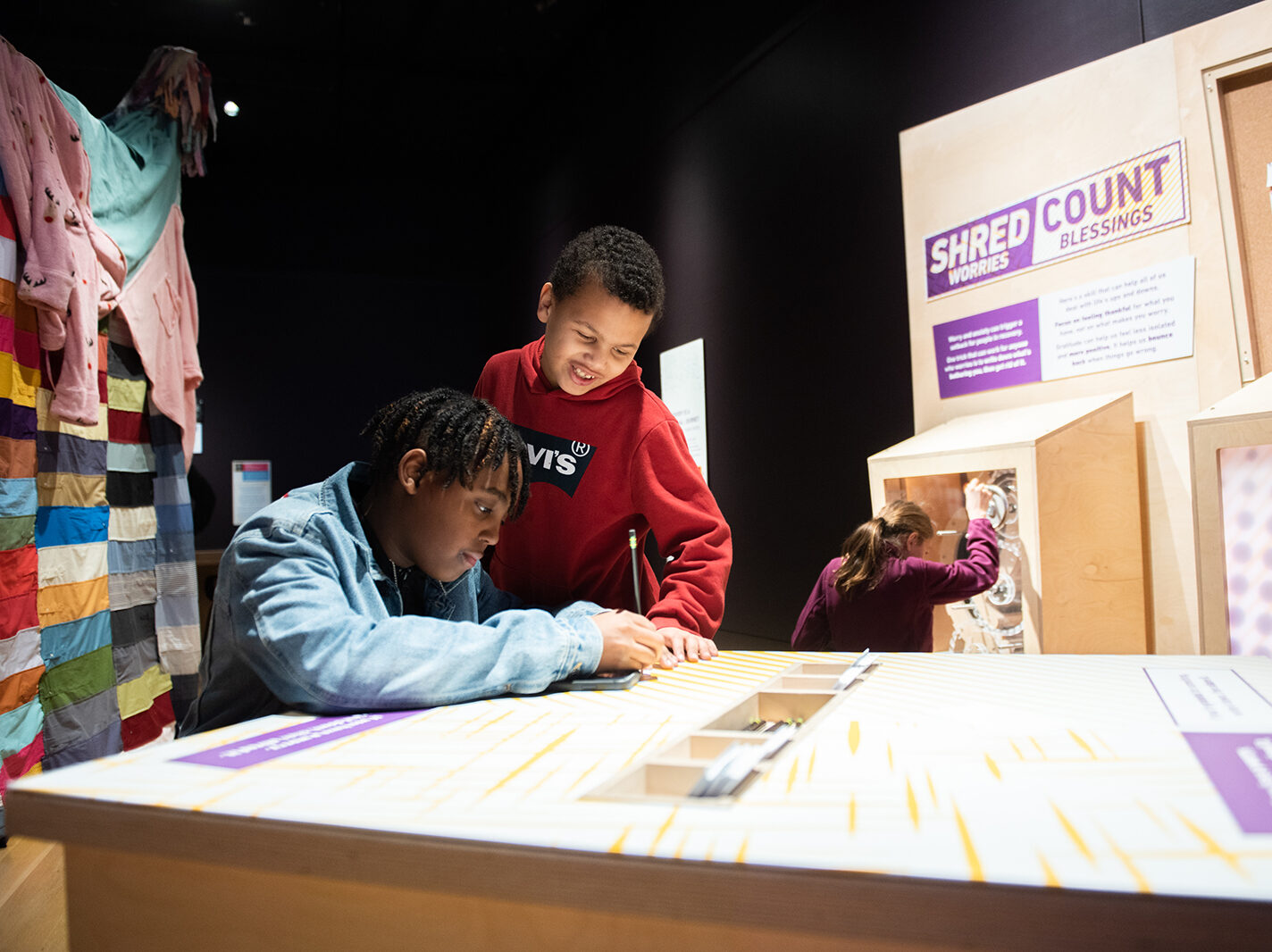
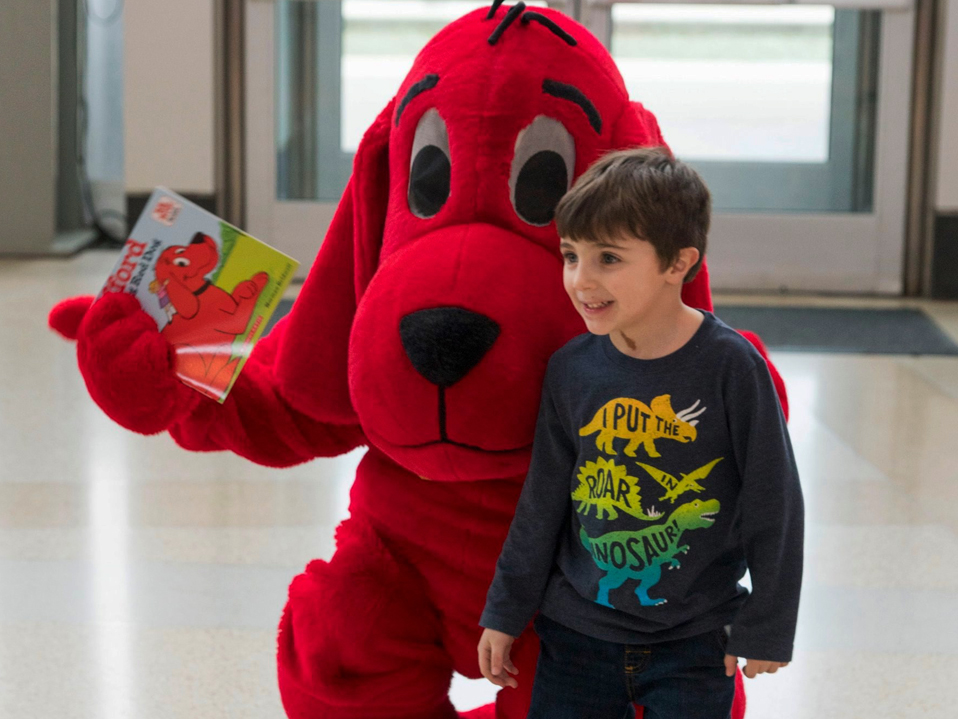
Educator Newsletter
Our educator newsletter offers the latest learning opportunities, experiences, educational programs and events at the Indiana State Museum and Historic Sites. Sign up in our subscription center by selecting the “Educators” topic. There, you also can sign up to receive news about other upcoming programs.
Subscribe nowEducator & Chaperone Guides
Check out our tips and tricks in preparing busy teachers and students for upcoming field trips. Do you want to provide more guidance and support for your chaperones? These guides are a great tool! They include a map of the museum and questions to ask students to encourage curiosity and critical thinking. Guides are separated by grade level to focus on academic standards.
Educator Guide Chaperone Guide Chaperone Letter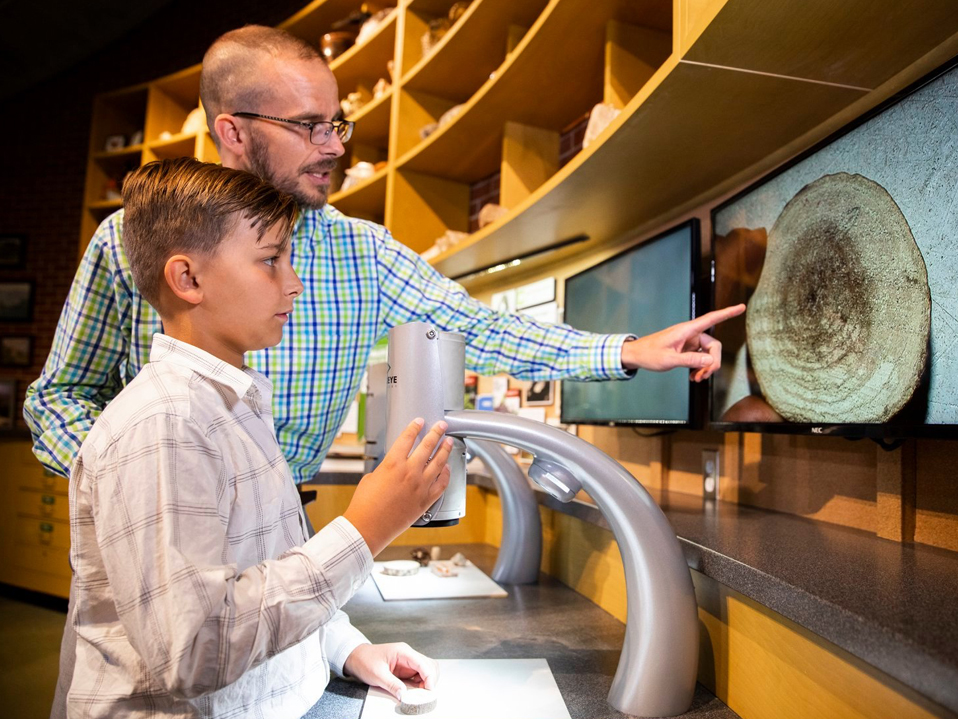
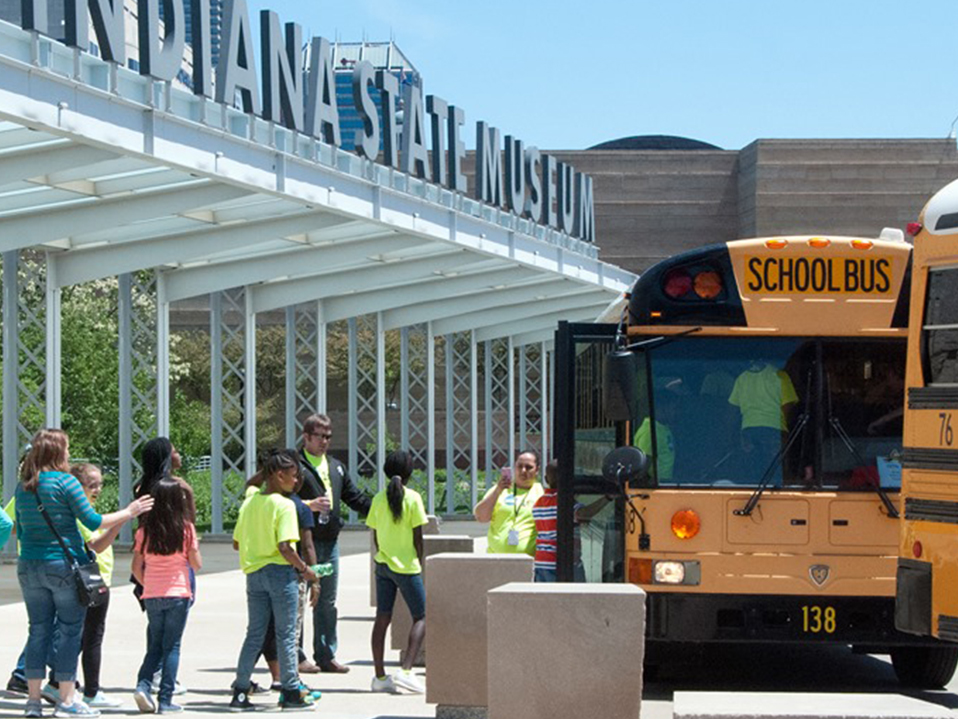
Student Field Trip Guide
Are you looking for a way to capture your students’ thoughts during their field trip? Our student field trip guide is a great way to track what they found interesting and fascinating while building on their English/Language Arts skills. Students can write or draw the things that make them curious to learn more. This guide is appropriate for all grade levels.
Student Guide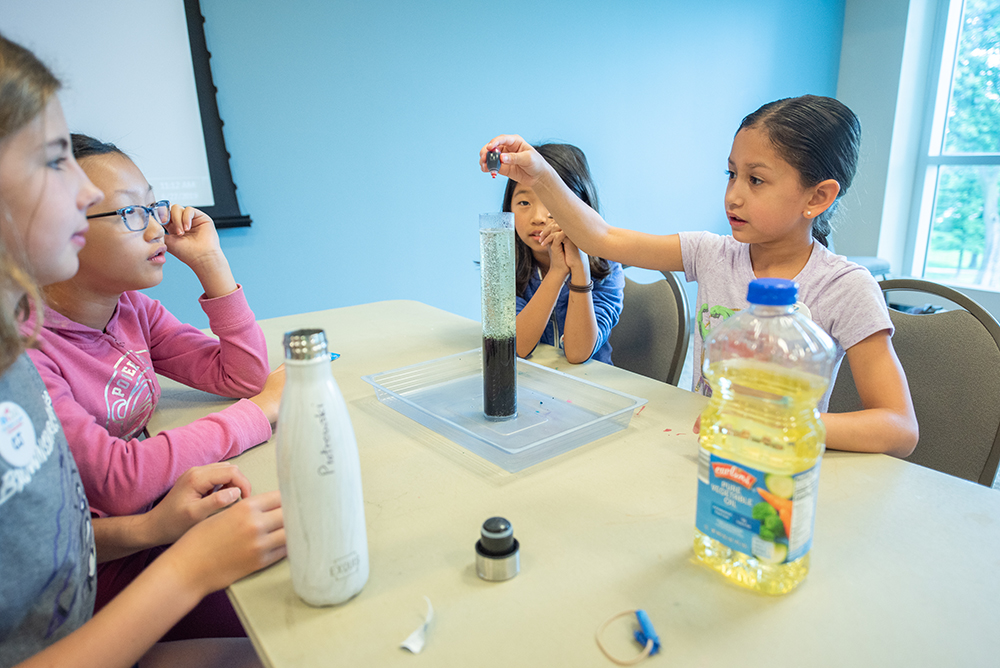
Program Scholarships
SCHOOLS OR EDUCATIONAL ORGANIZATIONS MAY QUALIFY FOR ONE OF INDIANA STATE MUSEUM’S MANY SCHOOL, EARLY CHILDHOOD OR OUTREACH PROGRAMS FOR FREE.
This is made possible with funding provided by the Indiana Academy of Science. Those who qualify for a free science program may also receive transportation reimbursement.
Applications are now available and accepted on a rolling basis. Schools will be notified whether their application is approved or placed on a wait list.
Please contact Brittney Basaran, school program manager, at 317.409.7136 or [email protected] with questions.
Submit ApplicationEducator programs and events
-
Oct 28, 2024 10:00 am - 1:00 pmIndiana State Museum
Homeschool: Game, Strategy, Play
-
Nov 4, 2024 10:00 am - 12:00 pmIndiana State Museum
Homeschool: Candy Chemistry
-
Nov 4, 2024 1:30 pm - 3:30 pmIndiana State Museum
Homeschool: Candy Chemistry
-
Nov 5, 2024 10:00 am - 12:00 pmIndiana State Museum
Homeschool: Candy Chemistry
-
Nov 5, 2024 1:30 pm - 3:30 pmIndiana State Museum
Homeschool: Candy Chemistry
-
Nov 7, 2024 10:00 am - 12:00 pmT.C. Steele
Homeschool Thursdays: Time Travel - Ancient Egypt (ages 6-13)





